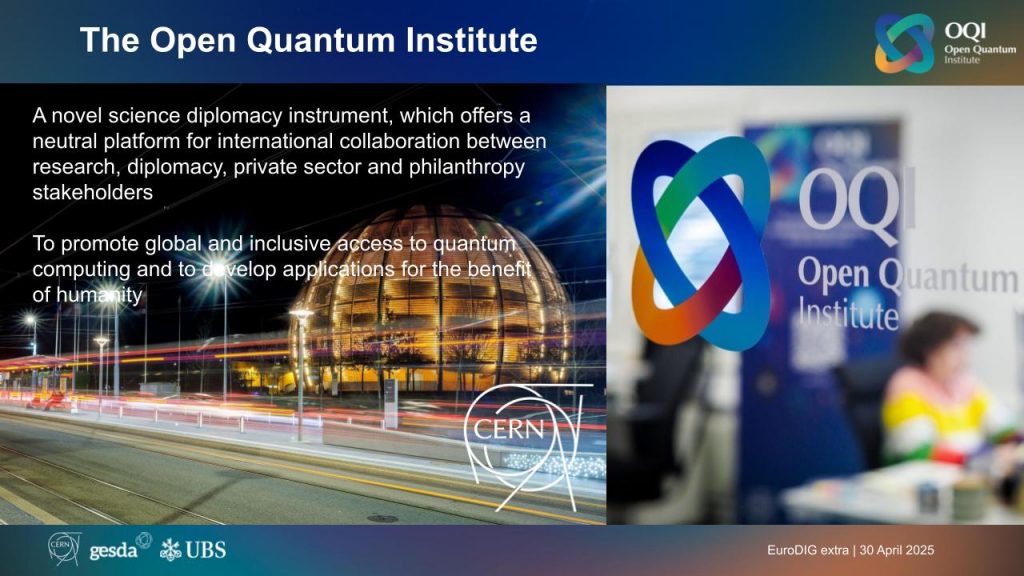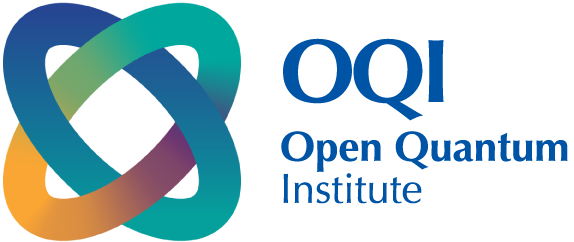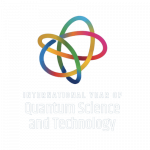OQI explores global opportunities and challenges of quantum computing at EuroDIG 2025
22nd May 2025

The European Dialogue on Internet Governance (EuroDIG) 2025 took place 12-14 May at the Council of Europe in Strasbourg, where Tim Smith, Coordinator of the Open Quantum Institute (OQI), participated in a workshop exploring the global challenges and opportunities of quantum computing.
During the workshop, important topics were addressed to identify the threats and opportunities posed by the developing technology—exploring the necessary frameworks and steps towards complying with regulatory requirements and security standards to ensure the technology is developed for the benefit of all, not just a few. Joining Tim in the session was Mark Mattingley-Scott (Chief Revenue Officer, Quantum Brilliance) and Elif Kiesow, (Project Lead, IGF DC Internet Standards, Security and Safety (IS3C)), moderated by Wout de Natris-van der Borght, Coordinator, IGF DC Internet Standards, Security and Safety (IS3C)).
Discussions delved into the global implications of quantum computing, with participants exploring the current capabilities and future projections of its development. Tim emphasised that the second quantum revolution is already well underway—reinforcing the necessity to learn from the lessons of AI, highlighting that multilateral governance and international collaboration are crucial to ensure that the development of quantum computing is for the benefit of society.
“It’s not a question of waiting for quantum computing,” explained Tim. “It’s a question of how to be involved in shaping its global governance and exploring its impactful applications for society and our planet.”
During the workshop, Tim showcased the work of OQI and our role as a novel science diplomacy instrument, offering a neutral platform for international collaboration to ensure that everyone benefits from the technology once it is realised.
He also explored OQI’s capacity building efforts, focusing on underserved geographies—outlining activities such as quantum hackathons, distribution of educational materials and training programmes, and raising awareness with policymakers and diplomats through the Quantum Diplomacy Game.
But with opportunities also comes risks. Tim gave a note of caution: without inclusive quantum computing frameworks in place, there is a risk of the technology being monopolised by only a few. He stressed the importance of its development not being driven solely by strategic or commercial interest–advocating instead for developing governance models aligning with the UN Sustainable Development Goals (SDGs).
The discussions from this session build upon those raised during a preceding webinar on 30th April, on the technical foundations and policy implications of quantum technology. During the webinar, Tim also had the opportunity to showcase examples of our work towards developing SDG-focused use cases to tackle real-world global challenges and highlight our role in providing a neutral platform to accelerate multilateral dialogue—shaping effective quantum computing governance for the benefit of all. Find out more in the webinar recording.
And explore our pipeline of developing SDG-focused use cases.




